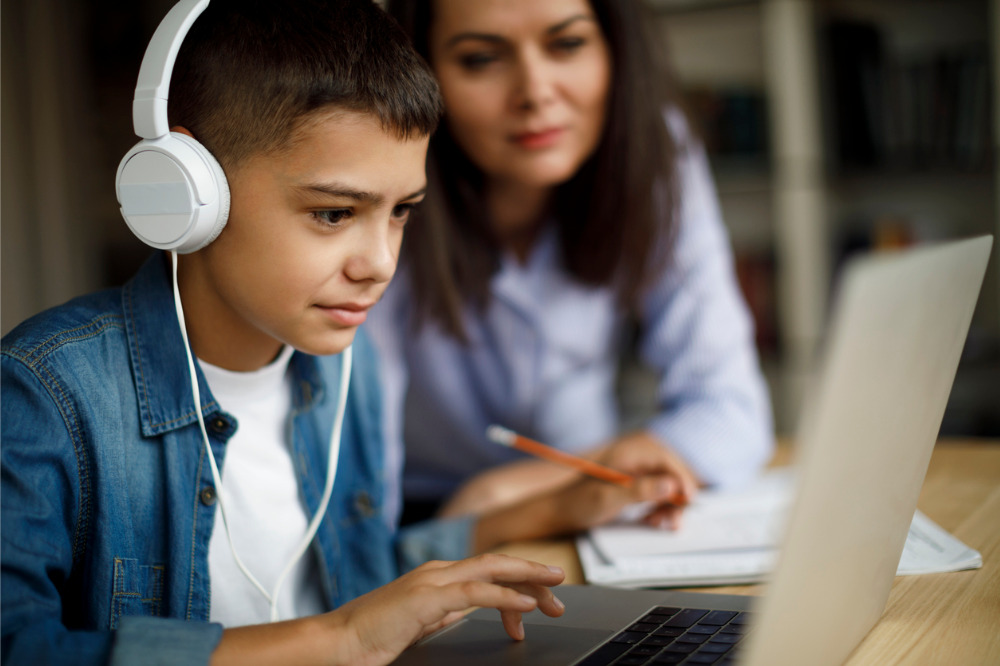
As the COVID-19 pandemic continues to take a significant toll on learning, experts have highlighted the importance of strong cooperation between schools and parents to support children during this challenging and uncertain time.
Now a new issues paper by Griffith University academics, commissioned by Independent Schools Queensland (ISQ), has brought together decades of parent engagement research and findings with current insights and school experiences from Queensland’s home-learning period.
The paper, titled: ‘Engaging parents in their child’s learning and wellbeing: Change, continuity, and COVID-19’, examines how the home learning period strengthened parent engagement in six areas under the CHANGE acronym: Connections; Home-school alignment; Agency; New and different roles for parents; Generative collaboration among teachers; and Empathy.
Long-term benefits for school-family ties
ISQ executive director, David Robertson, says Queensland’s short-term home learning period could have long-term benefits for school and family partnerships and student outcomes.
“More than 50 years of research confirms students had higher academic outcomes and improved attendance, behaviour, confidence and motivation when their parents were not simply ‘involved in their school’, but were actively “engaged in supporting their learning’”, he said.
Robertson said that during the home learning period, independent schools and their families re-imagined how to learn and connect using new and existing communication tools and strategies such as weekly wellbeing check-ins, virtual parent-teacher meetings and whole-school online physical challenges.
“Technology, when it was available, brought teachers into their students’ homes and families into classrooms with their children’s teachers,” he said.
“It was only a short period – between three and five weeks depending on the child’s year level – but important lessons for school delivery and parent-teacher partnerships were learned that could benefit Queensland’s education system”.
‘Not a question of if or when, but how’
Authors, leading Griffith University-based researchers on parent engagement, Dr Linda Willis and Professor Beryl Exley, said COVID-19 upended schooling, giving teachers and parents greater appreciation for each other’s roles and bringing parents closer to their children’s learning than ever before.
“The imperative of the COVID-19 crisis meant that engaging parents in their child’s learning and wellbeing needed to be prioritised if student progress and development at school were to continue without significant disruption,” Dr Willis and Professor Exley wrote.
“The question of parent engagement therefore was not one of if or when, but how”.
Dr Willis and Professor Exley said the home learning period put the important, but sometimes overlooked, role of parents in supporting student learning centre stage.
“What more might be achieved in student learning and wellbeing if, by design, rather than through upheaval, future learning and teaching included a stronger, more careful, and deliberate focus on this aspect of parent engagement?”
‘Parents now have more appreciation for teachers’
As the impact of the virus on Australia’s education system was becoming clear, Carey Baptist Grammar School in Melbourne responded by quickly charting its own path through the early stages of the pandemic.
This included forging stronger ties with its parent community to ensure everyone was constantly kept abreast of the latest developments in the ongoing crisis.
The school’s principal, Jonathan Walter, pointed out that the pandemic provided a unique opportunity for parents to see and appreciate the true extent of what teachers do on a daily basis.
“For the first time, parents – particularly in the younger years – have essentially been in the classroom with their children,” Walter told The Educator.
“They’ve seen first-hand the enormous effort our teachers have made to connect and to support the learning of their children. We received a lot of feedback and I think parents have developed an appreciation for the great work that our staff do”.
Walter said parents valued the teachers’ patience, their ability to explain concepts and their efforts in working with the different types of support each student needs.
“I think, moving forward, this relationship allows us opportunities to draw on the expertise of our parents in their professions, to really extend Carey’s offering beyond the traditional boundaries of the School,” he said.
“The ability to tap into what is a hugely creative and expert group of parents and for our students learn from their real-world experiences will deepen the program and make it richer for everyone”.


